Welcome User
Relevance
Consult Vascular Surgeons Online (28 doctors)

Dr Venu Kumar K N
Vascular Surgeon
10 Years • MBBS, MS (Surg), DNB (Surg), M.Ch (Vas Surg), DrNB (Vas Surg)
Bengaluru
Apollo Clinic, JP nagar, Bengaluru

Dr.u Grace Lalitha Priya
General Surgeon
10 Years • M S GENERAL SURGERY,FIAGES,FMAS
Visakhapatnam
Apollo Clinic Vizag, Visakhapatnam
Dr. Sanjeev Rao Kommoju
Vascular Surgeon
13 Years • MBBS,DNB-VASCULAR SURGERY
Hyderabad
Apollo Medical Centre Kondapur, Hyderabad

Dr. R. Jayakrishnan
Vascular Surgeon
20 Years • MBBS, MS, MRCS, MCH
Chennai
Apollo Medical Centre, Annanagar, Chennai
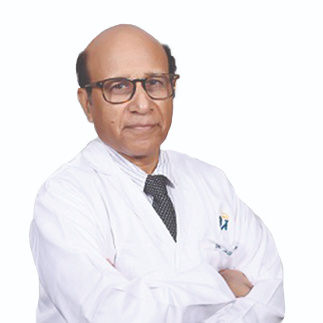
Dr. Jaisom Chopra
Vascular and Endovascular Surgeon
35 Years • MBBS, MS, FRCS
Delhi
Apollo Hospitals Indraprastha, Delhi
(50+ Patients)

Dr. Pinjala Rama Krishna
Vascular Surgeon
30 Years • MBBS, MS, FRCSEd, FICS, FVSI, FICA
Hyderabad
Apollo Hospitals Jubilee Hills, Hyderabad
(75+ Patients)

Dr. Rajarajan Venkatesan
Vascular Surgeon
16 Years • MBBS, MS (PGI), DNB, MCh (Vascular Surg.)
Chennai
Apollo Hospitals Greams Road, Chennai
(50+ Patients)
Dr. Mamidi Anil
Vascular Surgeon
3 Years • MS, GENERAL SURGERY, DNB, VASCULAR SURGERY
Secunderabad
Apollo Hospitals Secunderabad, Secunderabad

Dr Rohit Madhurkar
Interventional Radiologist
11 Years • MBBS, MD (Radio Diagnosis/Radiology), FIR-PDCC, SITAT (S. Korea)
Bengaluru
Apollo Hospitals Bannerghatta Road, Bengaluru

Dr. Aditya Vikram Kanoi
Plastic Surgeon
16 Years • MBBS, MS, MRM, MRCS (UK), MCh
Kolkata
Apollo Multispeciality Hospitals , Kolkata, Kolkata
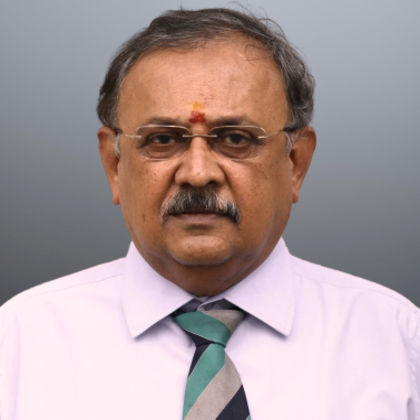
Dr. S.r. Subramanian
Vascular Surgeon
5 Years • MBBS, MS, Mch,FRCS
Chennai
Apollo Speciality Hospitals Vanagaram, Chennai
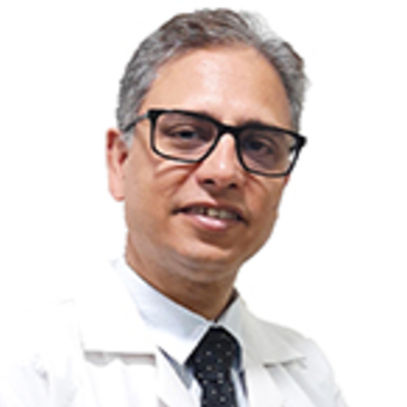
Dr Sudhir Adalti
Cardiothoracic and Vascular Surgeon
23 Years • MBBS, MS, Mch CVTS , Fellowship Advance cardiac surgery Auckland (NZ) and Brisbane (Aus)
Ahmedabad
Apollo Hospitals Gandhinagar, Ahmedabad
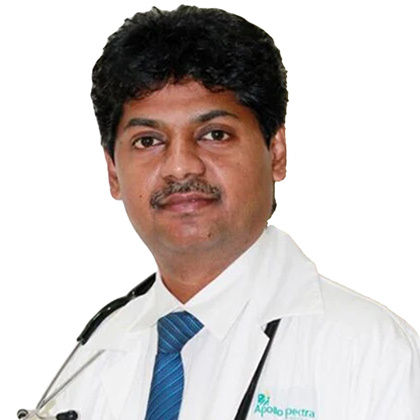
Dr. Balakumar S
Vascular Surgeon
24 Years • MBBS,MS (Gen. Surg.),MCh (Vascular Surg.)
Chennai
Apollo Speciality Hospitals OMR, Chennai
(25+ Patients)
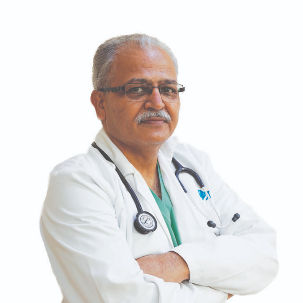
Dr. Rakesh Mahajan
Vascular Surgeon
36 Years • MBBS, MS, FRCS, FRCS
Delhi
Apollo Hospitals Indraprastha, Delhi

Dr. Venkata Prasanna K.s
Vascular Surgeon
5 Years • MBBS ., MS(General)., DrNB(Vascular and Endovascular Surgery)
Madurai
Apollo Speciality Hospitals KK Nagar, Madurai
(50+ Patients)
Vascular Surgery
Booking an appointment with a top vascular surgeon is now easier than ever with Apollo 24|7. Our user-friendly platform allows you to schedule online or phone consultations with trusted vascular surgeons at convenient times. With access to experienced specialists and state-of-the-art facilities, you can receive the best care for your vascular health needs. Don't wait – book your appointment with a skilled vascular surgeon today and take the first step towards better vascular health.
What is Vascular Surgery?
Vascular surgery is a specialised branch of medicine dedicated to the diagnosis, management, and treatment of disorders affecting the circulatory system, excluding the heart and brain. This speciality focuses on diseases and conditions affecting blood vessels—arteries carrying oxygen-rich blood and veins carrying blood back to the heart.
Vascular surgeons are trained to manage the entire spectrum of diseases affecting the peripheral vascular system through medical therapy, minimally invasive catheter procedures, and surgical reconstruction.
The relevance of this speciality in healthcare is paramount as vascular conditions can lead to serious health complications, including stroke, aneurysms, or even death if not properly managed.
Who is a Vascular Surgeon?
A vascular surgeon is a highly trained specialist who manages the health of blood vessels across the body except those of the heart and brain. These professionals are adept in surgery, endovascular procedures, and medical management of vascular conditions.
To become a vascular surgeon, an individual must complete extensive training, including a medical degree, followed by specialised surgical training and often additional fellowship in vascular surgery.
Their expertise enables them to treat a variety of conditions, such as varicose veins, thrombosis, aneurysms, and peripheral artery disease, ensuring comprehensive vascular health management.
What Does a Vascular Surgeon Do?
A vascular surgeon specialises in the care and management of diseases that affect the vascular system, which includes arteries, veins, and lymphatic systems, outside of the heart and brain. Their role is crucial in both emergency and elective situations, focusing on holistic patient care from diagnosis to treatment and follow-up.
Key Responsibilities:
Diagnosis: Vascular surgeons use advanced imaging techniques such as ultrasound, CT scans, and MRIs to accurately diagnose vascular conditions.
Treatment Planning: They develop tailored treatment plans that may include lifestyle changes, medication, or surgical options depending on the severity of the condition.
Surgical Interventions: Performing surgeries such as angioplasty, stenting, and bypass surgery to restore normal blood flow in blocked arteries and veins.
Follow-up Care: Providing postoperative care and monitoring to ensure long-term success and prevent complications.
Patient Education: Educating patients on vascular health, including diet, exercise, and managing risk factors like diabetes and hypertension.
Daily Activities:
Consultations: Meeting with patients to assess vascular symptoms and health concerns.
Surgical Procedures: Conducting scheduled and emergency surgeries to treat vascular issues.
Team Coordination: Collaborating with other healthcare professionals to provide comprehensive care.
Research and Development: Engaging in research to discover new treatment methods and improve existing techniques.
What are the Other Sub-specialities of Vascular Surgery?
Vascular surgery encompasses a range of sub-specialities, each focusing on different aspects of vascular health. This specialisation ensures patients receive targeted treatments for their specific conditions. Here’s an overview of the key areas within vascular surgery:
Endovascular Surgery: This less invasive approach involves using catheters and imaging technology to treat vascular diseases from within the blood vessels. It is commonly practised by artery surgeons to manage conditions such as aneurysms and arterial blockages, minimising recovery time and risks associated with open surgeries.
Aortic Aneurysm Repair: Specialised in by aneurysm repair specialists, this sub-speciality focuses on treating bulges in the aorta, the main artery of the body, which can be life-threatening if ruptured. The repair may involve traditional open surgery or endovascular techniques.
Peripheral Artery Disease (PAD) Treatment: Addressed by artery blockage treatment doctors, this involves the management of narrowed arteries, mostly in the legs, which can cause pain and mobility issues. Treatments range from lifestyle changes and medication to surgical procedures to restore blood flow.
Carotid Artery Surgery: This crucial intervention removes blockages from the carotid arteries, preventing potential strokes. It requires precise and expert handling by vascular surgeons to ensure successful outcomes.
Venous Insufficiency and Varicose Vein Treatment: Managed by varicose vein surgeons and leg vein doctors, this sub-speciality addresses problems in the venous system, such as varicose veins and chronic venous insufficiencies, improving both vascular health and cosmetic concerns.
Dialysis Access Surgery: Creating vascular access for patients undergoing dialysis, this procedure is vital for those with severe kidney disease, ensuring they can receive their treatments effectively.
Thoracic Outlet Syndrome Surgery: This involves the surgical decompression of the blood vessels and nerves in the thoracic outlet area between the collarbone and first rib. It's a complex procedure aimed at alleviating pain and restoring normal function.
Vascular Trauma Surgery: Focused on repairing vessels in patients who have sustained significant injuries, this sub-speciality requires quick and effective response to prevent long-term damage or loss of life.
What are the Vascular Surgery Examinations or Tests Performed by the Vascular Surgeon?
Vascular surgeons utilise a variety of diagnostic tests and examinations to assess the health of the vascular system. These tests are critical for identifying the nature and extent of vascular diseases, guiding effective treatment plans. Here are the most common diagnostic procedures performed in this field:
Ultrasound: This non-invasive test uses high-frequency sound waves to create images of the blood vessels. It helps in detecting blockages, clots, and abnormalities in the blood flow, particularly in the veins and arteries. It is a standard first step for a vein specialist to evaluate conditions like varicose veins and deep vein thrombosis.
Angiography: By injecting a contrast dye into the blood vessels and taking X-rays, angiography allows vascular surgeons to view blood flow and pinpoint areas of blockage or narrowing in arteries. This test is essential for planning interventions such as angioplasty or stenting.
CT Angiography and MR Angiography: These advanced imaging techniques provide detailed, cross-sectional images of blood vessels. They are used for more complex assessments, such as examining the aorta or the vessels of the brain.
Ankle-Brachial Index (ABI): A simple test for peripheral artery disease (PAD), the ABI compares blood pressure readings in the ankle and the arm. A low index number can indicate significant narrowing of the peripheral arteries.
Venography: Specifically useful for deep vein issues, this involves injecting a contrast dye to visualise the veins more clearly on X-ray, identifying blockages or deep vein thrombosis.
Blood Tests: Certain blood tests can indicate the risk or presence of vascular conditions, including cholesterol levels, blood sugar, and markers for inflammation.
When vascular issues are suspected, patients are often advised to book vascular surgeon consultations to undergo these diagnostic tests. Early detection through these examinations allows for timely and more effective treatment, reducing the risk of serious complications such as stroke or limb loss.
What are the Common Conditions & Diseases that Vascular Surgeons Treat?
Vascular surgeons manage a wide array of conditions affecting the blood vessels. Here are the top 15 conditions they frequently treat:
Peripheral Arterial Disease (PAD): Narrowing of arteries reducing blood flow to limbs.
Aortic Aneurysms: Bulges in the aorta that can rupture, causing life-threatening bleeding.
Varicose Veins: Enlarged veins that appear twisted and can cause pain and discomfort.
Carotid Artery Disease: Narrowing of the carotid arteries, increasing stroke risk.
Deep Vein Thrombosis (DVT): Blood clots in deep veins, typically in the legs.
Chronic Venous Insufficiency: Poor venous return over a long period, leading to swelling and ulcers.
Leg Ulcers: Open wounds on the legs that don’t heal, often due to poor circulation.
Venous Thromboembolism: Blood clots that travel to the lungs, blocking blood flow.
Raynaud’s Phenomenon: Blood vessel spasms that decrease blood flow to extremities.
Lymphedema: Swelling in an arm or leg caused by a lymphatic system blockage.
Thoracic Outlet Syndrome: Compression of nerves or blood vessels in the upper chest.
Renal Vascular Disease: Narrowing of arteries that supply the kidneys.
Mesenteric Ischemia: Poor blood supply to the intestines causing pain and digestion problems.
Vascular Trauma: Injury to blood vessels from accidents or violence.
Arteriovenous Malformations: Abnormal connections between arteries and veins.
These conditions highlight the critical nature of vascular health and the need for specialised care.
Reasons to See a Vascular Surgeon
Individuals should consult a vascular surgeon when experiencing symptoms such as persistent leg pain, swelling, varicose veins, or when diagnosed with conditions that impact blood circulation. Here are pivotal reasons for seeing a specialist:
Persistent Symptoms: Ongoing pain, numbness, or heaviness in the limbs suggesting circulatory issues.
Physical Changes: Noticeable changes in the colour or temperature of the skin, or development of non-healing wounds.
After Diagnosis: Following a diagnosis of any vascular condition that might require surgical intervention.
Considering these concerns, an online vascular surgeon consultation can be a crucial step towards diagnosing and managing potential vascular diseases effectively.
What Types of Procedures do Vascular Surgeons Perform?
Vascular surgeons are equipped to perform a variety of procedures aimed at treating conditions of the blood vessels. These procedures are broadly classified into therapies and surgeries, depending on the nature and severity of the condition being treated. Here’s an overview of the top procedures within each category:
Top Therapies
Angioplasty: Widening narrowed or obstructed arteries or veins using a balloon catheter.
Stenting: Insertion of a stent to keep an artery open after angioplasty.
Thrombolysis: Dissolving blood clots using medication delivered through a catheter.
Sclerotherapy: Injection of a solution into varicose veins to close them.
Laser Therapy: Using lasers to treat varicose veins, improving their appearance and reducing discomfort.
Compression Therapy: Utilising compression garments to manage symptoms of venous diseases such as edema and venous ulcers.
Endovenous Thermal Ablation: Using heat to close off varicose veins.
Non-Invasive Vascular Assessment: Utilising ultrasound and other techniques to assess blood flow and pressure in the veins and arteries.
Top Surgeries
Aneurysm Repair: Surgery to correct aneurysms, which are bulges in the walls of an artery.
Carotid Endarterectomy: Removal of plaque from the carotid artery to prevent stroke.
Bypass Surgery: Creating a bypass around a blocked artery to restore proper blood flow.
Vascular Grafting: Implanting a graft to replace or reinforce diseased blood vessels.
Varicose Vein Surgery: Removing or tying off large varicose veins in the legs.
Dialysis Access Surgery: Creating an access point for dialysis in patients with kidney failure.
Amputation: Removing a limb or part of a limb compromised by severe vascular disease.
Each procedure has its specific indications and is chosen based on the patient's individual needs. The vascular surgeon fee will vary depending on the complexity and type of procedure performed. These interventions are critical in managing and treating various vascular conditions, significantly improving patient outcomes.
Why Choose an Apollo 24|7 Vascular Surgeon?
Apollo 24|7 vascular surgeons are highly skilled and experienced specialists dedicated to providing exceptional care for patients with vascular conditions. Our team of expert surgeons is well-versed in the latest surgical techniques and technologies, ensuring that patients receive the most advanced and effective treatments available.
When you choose an Apollo 24|7 vascular surgeon, you can expect personalised care tailored to your unique needs and preferences. Our surgeons take the time to listen to your concerns, thoroughly evaluate your condition, and develop a comprehensive treatment plan that addresses your specific goals and priorities.
With Apollo 24|7, you have access to a wide range of advanced treatment options, from minimally invasive endovascular procedures to complex open surgeries. Our state-of-the-art facilities and cutting-edge equipment enable our surgeons to deliver the highest quality care with precision and efficiency.
We understand the importance of convenience and accessibility when it comes to healthcare. That's why we offer seamless access to consultations, both online and in-clinic, to ensure that you can receive the care you
What to Expect When Visiting a Vascular Surgeon?
Visiting a vascular surgeon often brings a sense of relief to patients facing vascular health concerns. The visit typically involves detailed assessments and personalised consultations to develop an effective treatment plan.
Initial Consultation: Your visit will start with a detailed medical history and a physical examination focused on your vascular health concerns.
Diagnostic Tests: You may undergo various non-invasive tests such as ultrasounds or more detailed assessments like angiograms depending on your symptoms.
Discussion of Findings: The surgeon will explain the diagnosis and discuss potential treatment options with you.
Treatment Planning: Based on your condition, a treatment plan ranging from medication and lifestyle changes to potential surgical options will be outlined.
Follow-Up Care: Information on follow-up visits and ongoing care will be provided.
Patients looking to schedule a visit can search for a "vascular surgeon near me" to find a specialist in their area. It's also helpful to check vascular surgeon reviews to choose a doctor who best meets your healthcare needs.
How Can I Get an Appointment With a Vascular Surgeon?
Getting an appointment with a vascular surgeon at Apollo 24|7 is a simple and convenient process:
Book online through the website: Visit the Apollo 24|7 website and navigate to the "Vascular Surgery" speciality page. Browse through the list of available vascular surgeons and select the one you'd like to consult. Choose a convenient date and time for your appointment and complete the online booking process.
Book through the Apollo 24|7 app: Download the Apollo 24|7 app on your smartphone or tablet. Select the "Vascular Surgery" speciality and choose your preferred surgeon. Pick a suitable date and time for your consultation and confirm your appointment through the app.
Call the Apollo 24|7 helpline: If you prefer to book your appointment over the phone, simply call the Apollo 24|7 helpline and speak with a friendly representative. They will assist you in selecting a vascular surgeon, finding a convenient appointment slot, and completing the booking process.
Request a referral from your primary care physician: If your primary care physician recommends seeing a vascular surgeon, they can help you arrange a referral to an Apollo 24|7 specialist. Once you have the referral, you can proceed with booking your appointment online, through the app, or by calling the helpline.
FAQs
Is vascular surgery painful?
Vascular surgery involves discomfort during recovery, similar to other surgical procedures. Pain management is a critical component, and surgeons provide medications and guidelines to help control pain effectively, ensuring a more comfortable recovery period.
How do you sleep after vascular surgery?
After vascular surgery, it's often recommended to sleep with the affected area elevated to reduce swelling and discomfort. Use pillows to prop up the limb or area as advised by your surgeon. It’s also beneficial to sleep on your back or on a non-operative side to avoid putting pressure on the surgical site.
What is the most common vascular surgery?
The most common vascular surgery is an angioplasty with stenting. This procedure involves widening narrowed or blocked arteries or veins using a balloon and then placing a stent to keep the vessel open.
Can vascular disease be cured?
While some vascular diseases can be effectively managed or cured with surgery or other treatments, many vascular conditions are chronic and require ongoing management to control symptoms and prevent complications.
Can you walk after vascular surgery?
Walking after vascular surgery depends on the type of surgery performed and individual recovery. Most patients are encouraged to walk soon after surgery as part of their recovery process to promote blood circulation and healing.
How long is vascular surgery?
The duration of vascular surgery varies depending on the complexity of the procedure. Simple surgeries may take one to two hours, while more complex interventions, like an aortic aneurysm repair, can take several hours.
What is the success rate of vascular surgery?
The success rate of vascular surgery generally ranges from 80% to 90%, depending on the specific procedure and patient health. Success rates are higher when the surgery is performed by experienced vascular surgeons.
Who needs vascular surgery?
Individuals with significant vascular diseases such as peripheral arterial disease, carotid artery disease, aneurysms, or severe varicose veins typically need vascular surgery. These conditions can pose serious health risks if left untreated.
What are the benefits of vascular surgery?
Benefits of vascular surgery include improved blood circulation, reduced risk of stroke and heart attack, relief from pain and swelling, improved wound healing, and prevention of vascular-related complications like limb loss.
What is the recovery time for vascular surgery?
Recovery time for vascular surgery varies widely based on the procedure and patient health. Minor surgeries may have a recovery time of a few days to weeks, while major procedures could require several weeks to months of recuperation.